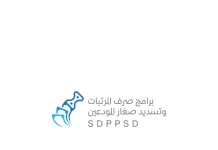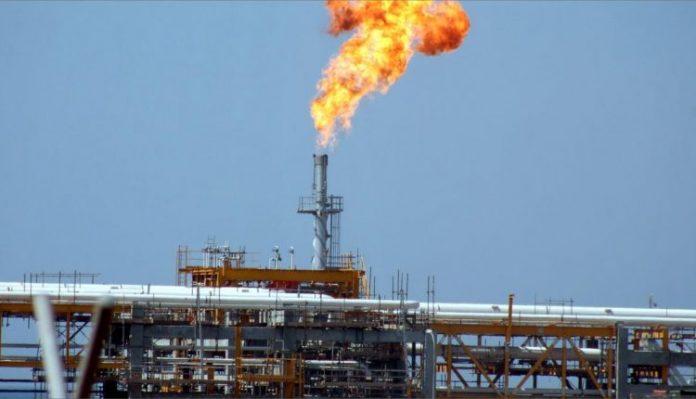In conjunction with the escalation of the Ukrainian crisis, the French company Total has accelerated steps to resume production and export of liquefied gas from “Sector 18” in the Safer oil region, north of Marib Governorate, after a seven-year hiatus.
During the past two weeks, the company held several meetings with the Ministry of Oil in the government of the Pro-Saudi Aggression in Paris and Dubai, in order to restore production. Also, Total collected all the partners in the Yemen Liquefied Gas Company, namely Hunt, SK, Hyundai and Kogas, in the UAE, which has been under the control of the Yemeni Balhaf gas facility since 2017.
It was agreed in this meeting on the re-production, export and marketing of Sector 18, whose gas reserves exceed 10 trillion cubic feet, of which Total and its partners acquire more than 7 trillion, according to agreements concluded with the government in 1996, that is, before the establishment of the gas project.
The issue of ten years, which subjected a large number of former Yemen’s officials to legal accountability later by the Public Prosecution in Sana’a, on charges of harming the country’s interest and issuing contracts and agreements for foreign companies based on incorrect and misleading data.
Over those years, Total exercised a monopoly with its partners, and during the period between 2009 and 2014, it adopted the lowest indicators for the sale of Yemeni liquefied gas, as the American “Henry Hope” indicator, with the intention of evading any demands to amend the contractual prices that it agreed upon with the Yemeni government in The nineties of the last century (it approved the price of only $3 per million calories, while it was selling for between $10 and $15).
This fraudulent policy was considered by the Sana’a prosecutor, and instructed the Ministry of Oil in mid-2014 to reserve Yemen’s right to fully compensate Total and its American partners for the quantities sold at prices lower than the Asian and European indicators.
These differences were estimated at $8 billion, in addition to Yemen’s losses resulting from losses of crude oil, liquefied petroleum gas and upstream fees, which the company and its partners deliberately handed over to the American “Hunt” company whose contract in Yemen expired in early 2005, and all its assets were transferred to the government company Safer.
Total has agreed with all the partners in the Yemen Liquefied Gas Company to reproduce, export and market gas.
Nevertheless, Total still controls the sources of liquefied gas, and refuses any supervision of its production operations, amid doubts that it deliberately withdrawn large quantities of gas during the period between 2009 and 2014, after it was found that it had withdrawn more than 8 million tons in 2013. in violation of the agreements and contracts signed with it.
In this context, Hassan Al-Obeidi, head of the Madari Center for Strategic Studies, accused, earlier this month, the French company of “attempting to loot 3 trillion cubic feet of liquefied gas outside the agreements.”
He pointed out that “the company, which acquires 51% of Balhaf’s share in Shabwa, hid these large quantities in its reservoirs and did not announce its abundance.
Al-Obaidi, a petroleum engineer, stressed that “any operation to restart the facility is rejected, unless Parliament re-adjusts prices and ratifies the previous agreement.”
Also, documents obtained by Al-Akhbar confirm that Total carried out an organized looting of Yemeni liquefied gas, and it was found that the French side increased the production capacity from 5.3 million tons annually to 6.7 million tons, in violation of the agreements, with the aim of increasing the Yemeni government’s revenues from gas sales, It was just fake.
While the total government resources from these sales during the pre-war years did not exceed $1.1 billion, its losses in crude oil, natural gas, petroleum and upstream fees during the same period amounted to $2.7 billion.
Also, Yemen’s revenues from the export of liquefied gas during the period from 2009 to 2014, did not exceed 5% of public revenues.
The report of the Central Agency for Control and Accountability issued in 2014 stated that the amount of exports of liquefied gas amounted to 1243 trillion British thermal units during the period from 2009 to 2013, based on an average price per million British thermal units, which amounted to 11.7 dollars in the global market, bringing the value of sales About 14.5 billion dollars, while the Yemeni government’s revenues did not exceed 787 million dollars, equivalent to only 5% of its value, compared to 95% for Total and its partners.
Specialists attributed this to the old contractual prices that Total rejected all government requests to amend them, insisting on determining the Yemeni government’s share of the project’s net profits after deducting 50% of the total income as capital and operating expenses for the operating company.
According to oil experts, any attempt to re-produce and export liquefied gas at present, in light of the cessation of oil production from the oil sector itself (18 Safer), will have severe damage to oil reserves, in addition to the fact that if the process is resumed without reviewing contractual prices and restoring The Yemeni sovereign right over the aforementioned sector, the French “Total” will continue to loot Yemeni gas, taking advantage of the political and economic division in Yemen.
Source: Lebanese newspaper (Al-Akhbar)




















